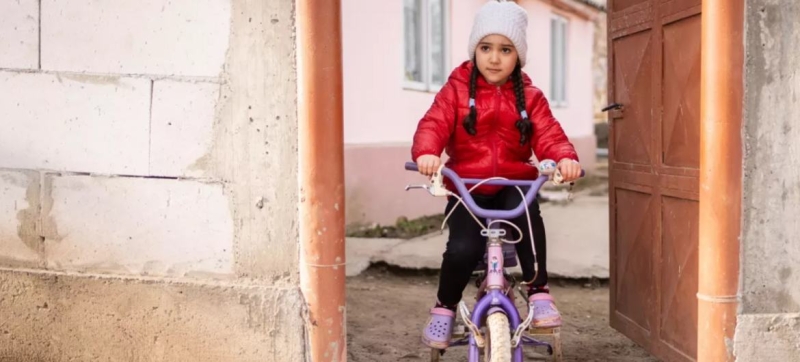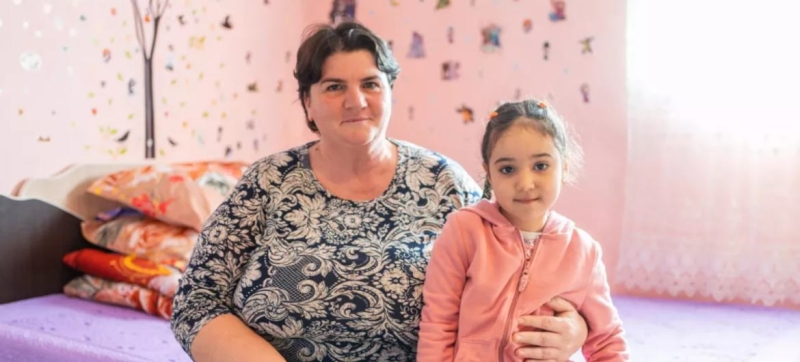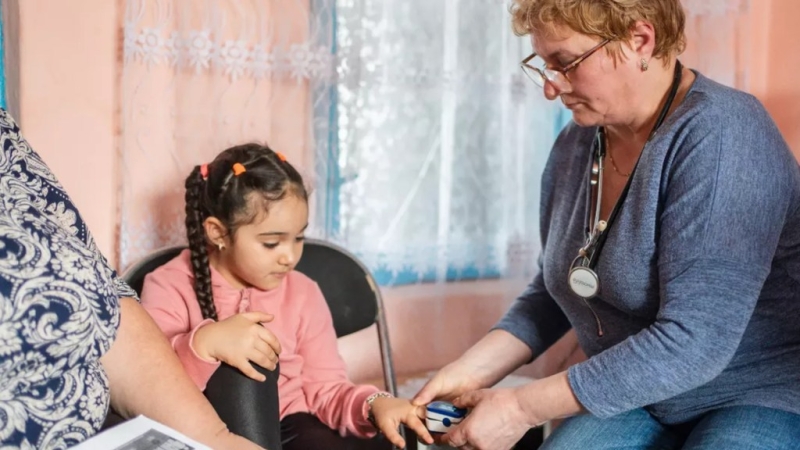
Five-year-old Antonia was hospitalized with pneumonia at the age of two. The girl still suffers from complications. Romania has the highest infant mortality rate from pneumonia in the world Health
In Romania, every fourth death among young children is caused by pneumonia. This is the highest rate in the world. The United Nations Children’s Fund (UNICEF) is working with local authorities to address this problem.
Long-term consequences of pneumonia
Five-year-old Antonia has been staying at home for several days now. She is very often isolated. Due to the long-term health complications caused by pneumonia, even a minor cold can lead to hospitalization.
“She loves to play outside and most of all, she loves going to kindergarten. She asks me every day: “Grandma, can I go tomorrow?”,” says Antonia’s grandmother Maria.
Very often, Antonia hears “no” in response to this question. She has to stay at home for long periods of time and avoid contact with other children to protect her fragile health.
Antonia was hospitalized with pneumonia when she was just two years old. After discharge, treatment had to be continued at home, but the family could not afford the expensive course of therapy.
“She had a high fever and started having convulsions. At that moment, I thought we had lost her. She was not even three years old,” recalls Maria.

Antonia with her grandmother Maria.
The situation is worst in rural areas
The fight against childhood pneumonia has made significant progress around the world. But Romania is an exception. The problem is most acute in rural areas, where access to health care, social support and education is limited, and many families live in poverty.
“There are many factors that influence the mortality rate from preventable respiratory diseases, especially in rural Romania,” says Dr. Ovidiu Emilian Bibire, a family doctor who has been working in the Corbasca community, where Antonia lives, for 24 years.
A large number of parents in rural areas are potentially less prepared for the challenges of raising a child, he says. In addition, the specialist notes that delays in providing medical care can lead to the respiratory disease becoming chronic.
Mistrust in vaccines
Cecilia Lukacs, who heads one of the departments of the Department of Public Health of Bacau Province, where Corbasca is located, also points to the suspicious attitude of many parents in rural areas towards vaccination.
“In Bacau province, about 50 percent of parents whose children have reached the age of immunization refuse to vaccinate them,” she says.
“This is extremely worrying and, in my opinion, is one of the main reasons why the child mortality rate is so high,” Lukacs adds.
For example, in children who have not received the necessary vaccinations and who contract whooping cough, in 5 percent of cases, serious complications develop that can lead to death. At the same time, the whooping cough vaccination, usually offered as part of the diphtheria, tetanus and pertussis (DPT) vaccine, provides 98 percent protection against the disease. Children who do not receive vaccinations on time, such as the DPT vaccine, are at much higher risk of respiratory diseases, both in the short and long term.

Nurse Lâcrêmioara Vranceanu visits Antonia and other children at home.
UNICEF Home Visits and Community Centres
Health workers in the seven-village Korbaska community are trying to provide all local families with essential health care. Nurse Lăcrămioara Vranceanu, who works with Dr. Bibire, describes her efforts: “I visit families in the villages at home, identify vulnerable cases, refer them to the doctor, and counsel mothers and families on health issues such as the importance of personal hygiene, breastfeeding, good nutrition and vaccinations.”
Lăcrămioara’s work in Corbasca began in 2016, when UNICEF led a local project to support the provision of basic, integrated health, education and social protection services for children.
In Bacau province, this programme was followed by the piloting of five integrated community centres as part of UNICEF’s flagship initiative, Romania for Every Child, launched in 2021 year.
Help for Children and Adults
More than 7,220 children and their parents or guardians have now accessed services provided at these centres, including specialist psychological services, physical therapy and speech therapy. And more than 1,000 adults attended parenting workshops, which included information on the importance of primary health care and vaccinations for children.
Thanks to meeting nurse Lăcrămioara, Antonia not only received the necessary medical care and information, but also decided on her future profession.
“When I grow up, I will become a doctor. And then I will be able to help all children and adults,” says Antonia.
